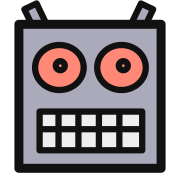To succeed, investigative reporters have to be good at perceiving relatively obscure patterns out of random bits of information. It often starts with a hunch, then juxtaposition, followed often by a stroke of luck.
Visual artists sometimes discover patterns as they work. It often starts with an idea, a single image and the perception that things are interconnected in mysterious ways.
Soon they are making things visible that had previously been invisible.
Many other people who do not consider themselves journalists or artists have these same skill sets. They are quite good at solving mysteries, drawing conclusions and finding meaning in life.
Some of them make great story-tellers.
The stories we tell each other matter. They sustain our families, our communities, our religions.
Patterns, connections, stories. It’s all really simple. Caring for each other is the meaning of life.
LINKS:
Hurricane Hilary could dump over a year’s worth of rain on parts of the Southwest (CNN)
Fulton County Sheriff's Office investigating threats to grand jurors who voted on Trump indictment (CBS)
Texas woman accused of threatening to kill judge overseeing Trump election case and a congresswoman (WFAA)
Trump cancels press conference on election fraud claims, citing attorneys' advice (NPR)
American democracy is cracking. These forces help explain why. (WP)
Judge dismisses Hunter Biden misdemeanor tax charges (The Hill)
The Cobb County School Board in Georgia upheld the firing of Katie Rinderle, a fifth-grade teacher at Due West Elementary School in Marietta who was terminated in June after reading a book about gender identity to her class. The book had been purchased at a school book fair. [HuffPost]
A Talisman Against the Taliban (Time)
Taliban’s ties with Pakistan fraying amid mounting security concerns (Al Jazeera)
Corruption in Afghanistan offers lessons for billions going to Ukraine (NPR)
Russia recruited operatives online to target weapons crossing Poland (WP)
Biden turns to Camp David diplomacy for first-ever trilateral summit with Japan and South Korea (CNN)
At Camp David Summit, Japan, South Korea and U.S. Present a United Front (NYT)
Report: Potential NYT lawsuit could force OpenAI to wipe ChatGPT and start over (Ars Technica)
A Letter Prompted Talk of AI Doomsday. Many Who Signed Weren't Actually AI Doomers (Wired)
AI Is the Real Deal—if You Understand It. (Barron’s)
LinkedIn Says ChatGPT-Related Job Postings Have Ballooned 21-Fold Since November (Forbes)
Does artificial intelligence pose a risk to humans? (Al Jazeera)
Companies Increasingly Fear Backlash Over Their AI Work (WSJ)
AI is speeding up scientific discoveries and helping to spot new ideas (Axios)
Some of the world's biggest advertisers are experimenting with using generative AI software to cut costs and increase productivity. But many companies remain wary of security and copyright risks as well as the dangers of unintended biases baked into the raw information. (Reuters)
AI chatbots become more sycophantic as they get more advanced —
If a person says they believe an objectively false statement, AIs tend to agree with them – and the problem seems to get worse as models get bigger (New Scientist)
Millions of old printed photos are sitting in storage. Digitizing them can unlock countless memories (AP)
Man Tinkering With Anecdote Set List Before Next Date (The Onion)











